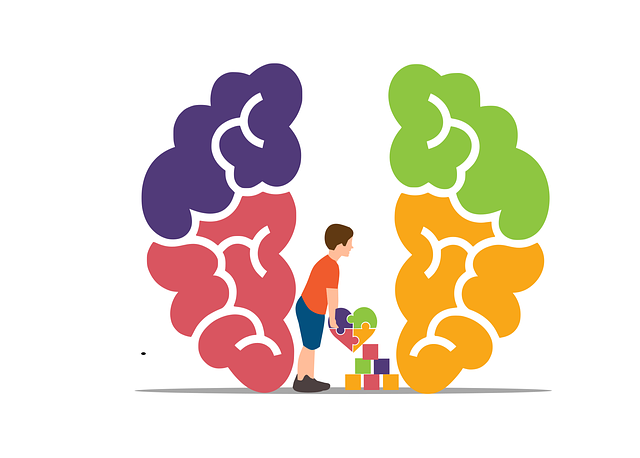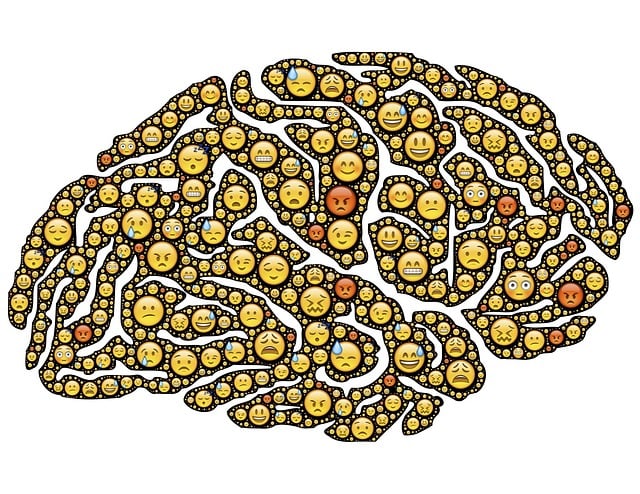Mental wellness is crucial for Hebrew-speaking young adults facing life's challenges, including anxiety, depression, and cultural barriers to accessing support. Specialized therapy tailored to their demographic, offering workshops on self-esteem, stress reduction, and management programs, enhances resilience and well-being. Key initiatives include Mental Wellness Coaching, Stress Management Workshops, and organizations supporting healthcare providers' mental health. To sustain progress post-therapy, structured routines for mood management, robust coping mechanisms, risk management planning, and confidence-boosting exercises are vital.
“Promoting mental wellness among young adults is paramount, especially within diverse communities. This article explores the unique needs of Hebrew-speaking youth, focusing on therapy as a cornerstone for their well-being. We delve into the significance of understanding mental health in this demographic and present accessible resources tailored to their cultural context. Furthermore, it offers practical strategies to maintain momentum post-therapy sessions, emphasizing the holistic approach to nurturing mental wellness for young adults.”
- Understanding Mental Wellness and Its Significance for Young Adults
- The Role of Therapy in Promoting Hebrew-Speaking Young Adult's Mental Health
- Accessible Resources and Support Networks for Effective Therapy
- Strategies to Maintain and Enhance Mental Wellness After Therapy Sessions
Understanding Mental Wellness and Its Significance for Young Adults

Mental wellness is a fundamental aspect of overall health, especially for young adults navigating life’s challenges and transitions. It involves emotional, psychological, and social well-being, enabling individuals to cope with stress, make meaningful connections, and lead fulfilling lives. For Hebrew-speaking young adults, understanding mental wellness is crucial as they often face unique cultural and linguistic barriers when seeking support.
This demographic faces increasing pressure from academic expectations, societal norms, and the rapid pace of modern life, which can contribute to heightened anxiety, depression, and other mental health concerns. Recognizing these challenges, specialized therapy for young adults in Hebrew speaking communities becomes vital. Organizations offering self-esteem improvement workshops, stress reduction methods, and management programs can significantly impact this age group’s mental wellness. Such initiatives not only provide a safe space for open discussions but also offer practical tools to enhance resilience and overall well-being.
The Role of Therapy in Promoting Hebrew-Speaking Young Adult's Mental Health

For Hebrew-speaking young adults, accessing culturally sensitive therapy is paramount in promoting mental wellness. Many young adults from diverse linguistic backgrounds face challenges in finding therapists who understand their unique experiences and can communicate effectively in their native language. This gap can exacerbate existing mental health issues and hinder progress towards recovery. Therapy tailored to this demographic considers the specific cultural nuances, family dynamics, and community influences that shape their lives.
By offering therapy specifically designed for Hebrew-speaking young adults, professionals can significantly boost confidence, foster a sense of belonging, and reduce the stigma surrounding mental illness. This approach not only enhances the therapeutic process but also encourages open communication about emotional well-being. Moreover, it equips mental health professionals with essential tools for risk management planning, ensuring that they are equipped to handle diverse client needs effectively while fostering an inclusive environment conducive to healing.
Accessible Resources and Support Networks for Effective Therapy

For young adults speaking Hebrew, accessing appropriate therapy and support can be transformative in their mental wellness journey. Many organizations specialize in providing therapy services tailored to this demographic, ensuring cultural sensitivity and language accessibility. These resources are invaluable for addressing various mental health concerns prevalent among young adults, such as anxiety, depression, and trauma.
Additionally, there are comprehensive programs available like Mental Wellness Coaching and Stress Management Workshops designed to empower individuals with coping strategies. Organizations focused on burnout prevention offer essential support for healthcare providers, a demographic often at risk of mental health challenges due to their demanding professions. Such initiatives contribute to the overall development and resilience of young adults, fostering healthier and more fulfilling lives.
Strategies to Maintain and Enhance Mental Wellness After Therapy Sessions

Maintaining mental wellness after therapy sessions is a crucial step towards long-term psychological well-being, especially for young adults seeking therapy for Young Adults Hebrew Speaking. Integrating therapeutic insights into daily life requires intentional practices. One effective strategy is to establish structured routines for mood management, including regular exercise, adequate sleep, and mindfulness practices such as meditation or journaling. These activities help regulate emotions, promote clarity, and cultivate a sense of calm.
Additionally, developing robust coping mechanisms and risk management planning for mental health professionals is paramount. This involves identifying personal triggers, implementing healthy stress-reduction techniques, and seeking support when needed. Building resilience through confidence boosting exercises, like setting achievable goals or engaging in hobbies, empowers individuals to navigate challenges with greater equanimity. By adopting these strategies, young adults can sustain the momentum gained from therapy and continue fostering their mental wellness journey.
Mental wellness is a cornerstone of overall health, especially for young adults navigating life’s challenges. By understanding the significance of mental health and leveraging accessible resources like therapy for Hebrew-speaking young adults, we can foster resilience and well-being. Effective therapy, combined with strategies to maintain mental wellness post-sessions, empowers individuals to thrive in a complex world. For those seeking support, there are numerous networks available, ensuring no one faces their mental health journey alone.














